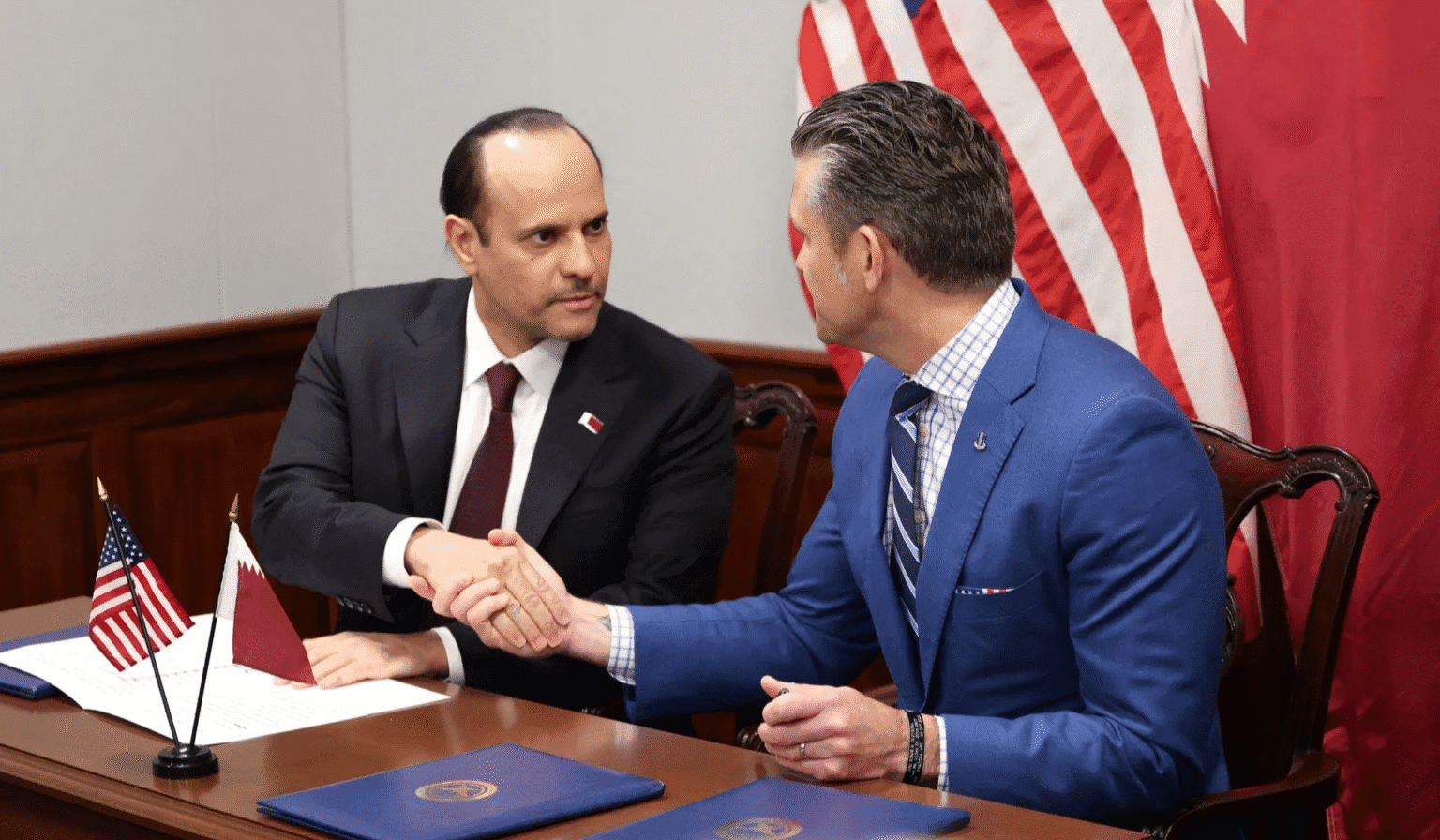The U.S. Department of Defense has agreed to host a contingent of Qatari F-15 fighter jets and pilots at Mountain Home Air Force Base in Idaho, under a newly signed letter of acceptance to build a training facility on U.S. soil.
Announced Friday by Defense Secretary Pete Hegseth during a Pentagon ceremony with Qatar’s defense minister, the arrangement is intended to deepen military cooperation, bolster pilot training, and enhance interoperability between U.S. and Qatari forces. Hegseth emphasised that the facility would “host a contingent of Qatari F-15s and pilots to enhance our combined training, increase lethality, [and] interoperability.”
Qatar is expected to fund the construction and maintenance of the facility, but U.S. officials clarified that it would not constitute a foreign base; control and operational oversight will remain under U.S. authority. The Qatari embassy described it as a 10-year commitment to build a dedicated site within the existing base to support advanced training and strengthen joint defense interests.
The decision aligns with broader patterns of allied air force units training in the U.S. The Mountain Home base already hosts Singapore F-15SG jets in a long-standing partnership. Qatar’s climate, size, and geographic constraints have made overseas training infrastructure a strategic necessity; Idaho’s terrain is seen as offering conditions analogous to those in the Gulf for maneuver and high-speed operations.
The announcement generated immediate pushback from some critics. Conservative activist Laura Loomer accused the administration of granting Qatar a “military base” on U.S. soil — a claim that Pentagon officials swiftly rejected, reiterating the facility remains under U.S. control and operation.
Supporters of the move argue it furthers the U.S. strategic posture in the Gulf and reflects the evolving role of Qatar in regional security and diplomacy, particularly in its mediation efforts during the recent Israel-Hamas ceasefire negotiations. Critics, however, view the plan as raising sensitive questions over sovereignty, foreign military presence, and the strategic implications of deepened military ties with Gulf states.





